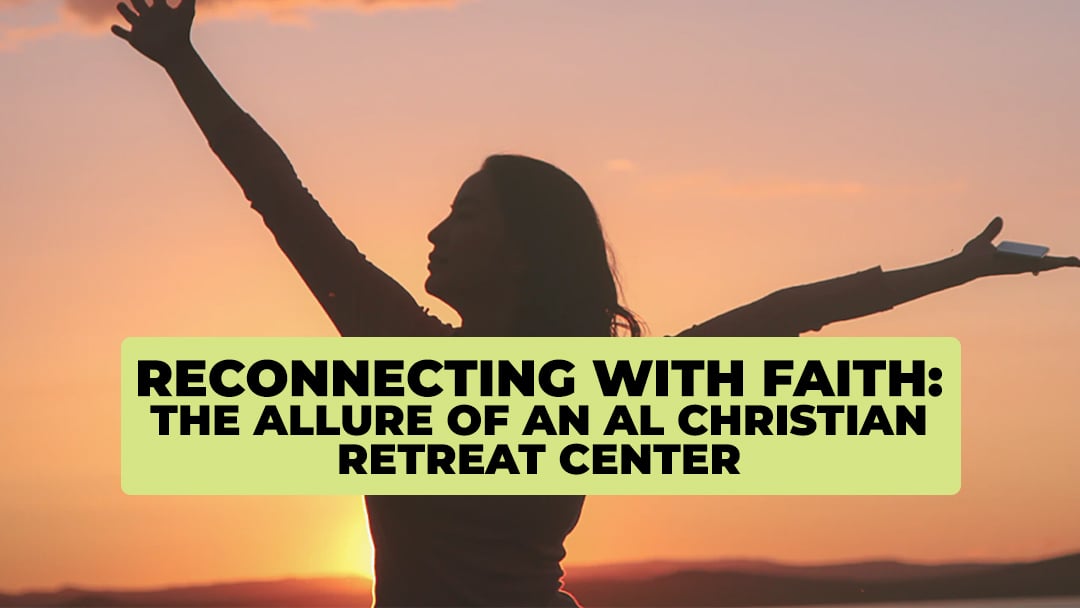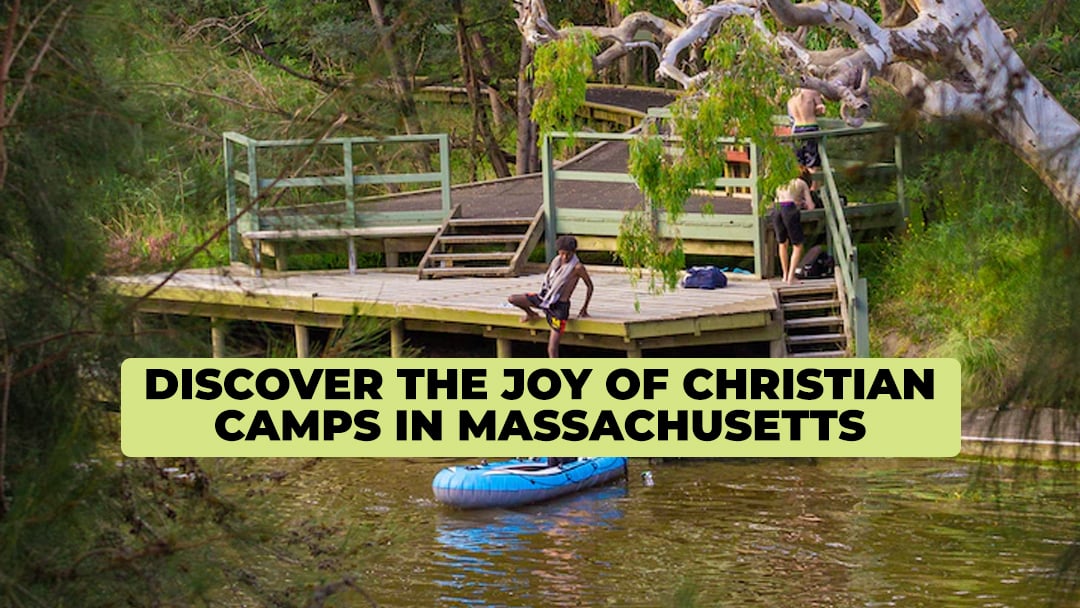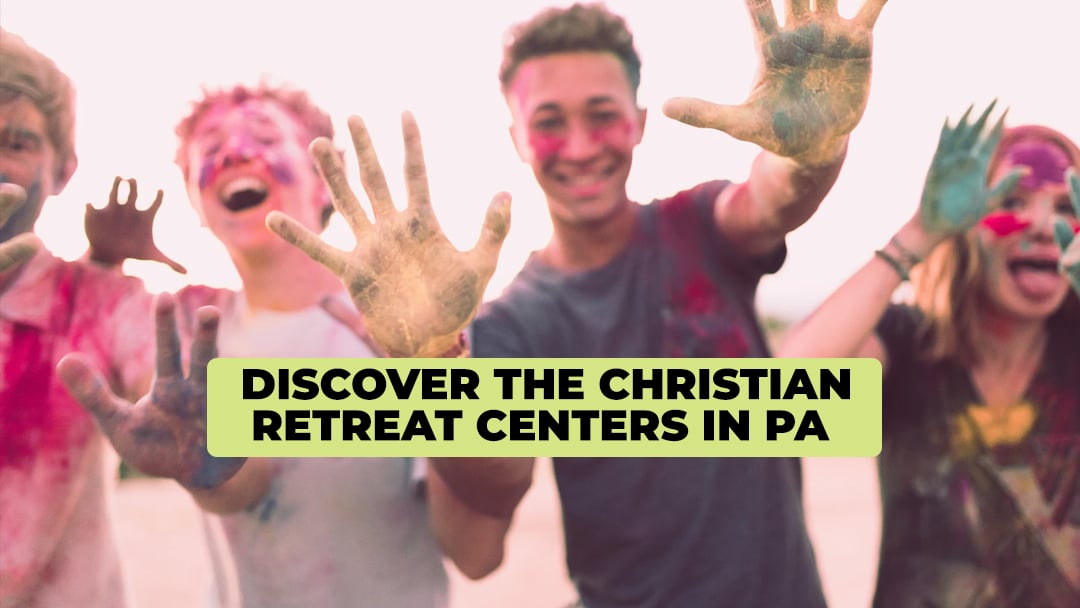Music and worship camps offer a unique blend of spiritual growth and musical development. These camps are designed not just for honing musical skills but also for fostering a deeper connection with faith and community. This blog post explores various aspects of music and worship camps, guiding parents and young musicians alike in understanding and choosing the right camp experience.
Introduction to Music and Worship Camps
Music and worship camps offer a unique blend of artistic expression and spiritual development. These camps are not just about learning music; they are about connecting with faith and community. Catering to a wide range of interests and skill levels, these camps provide an environment where participants can deepen their musical talents and explore their spiritual beliefs.
At these camps, days are filled with music lessons, choir rehearsals, and worship services, all centered around the shared love of music and faith. Participants engage not only in developing their musical abilities but also in personal growth, and learning about teamwork, leadership, and creativity. These camps offer a much-needed break from digital distractions, allowing campers to connect with nature, music, and each other in a meaningful way.
The Importance of Music in Worship
Medium for Spiritual Expression: Music transcends mere performance in worship, serving as a profound way to communicate with the divine, uplifting the soul and expressing deep-seated emotions and faith.
Form of Prayer and Meditation: It acts as a form of prayer, conveying messages that words alone cannot, thus becoming an integral part of religious education and spiritual growth.
Unifying Force in Worship: Music brings worshippers together, fostering community and shared purpose, and enhancing the sense of belonging within a congregation.
Setting Worship Tone and Atmosphere: Different styles of music can set the tone for worship services, invoking feelings of reverence, joy, repentance, or celebration, aiding worshippers in achieving a spiritual mindset.
Reflecting Diversity in Worship: The variety in musical styles caters to diverse congregations and services, reflecting the broad spectrum of religious communities.
Personal Journey of Faith: For individuals, engaging in music can be a deeply spiritual act, allowing for personal reflection and a deeper connection with their faith.
Enriching Spiritual Life: Music is not just an accessory in worship but a fundamental element that enriches both personal and communal spiritual experiences.
Types of Music and Worship Camps
Music and worship camps come in various formats and styles to cater to different preferences, denominations, and musical interests. Understanding the types of camps available can help you choose the right fit for your or your child’s spiritual and musical growth. Here are some common types:
Traditional Hymn-Based Camps
These camps focus on traditional hymns and classical religious music. They are ideal for those interested in choir singing, organ playing, and classical music training within a worship context.
Contemporary Christian Music Camps:
These camps are geared towards modern worship music styles, often including bands and contemporary worship teams. They are perfect for those who are passionate about modern Christian music and want to explore guitar, drums, keyboard, and vocal techniques in a contemporary setting.
Instrument-Specific Camps:
Some camps offer training focused on specific instruments like piano, guitar, or wind instruments, tailored for both beginners and advanced musicians looking to enhance their skills in a faith-based environment.
Vocal Music Camps:
Individuals who are exploring their faith or are new to Christianity can greatly benefit from the inclusive and nurturing environment of retreats. They provide a welcoming space to ask questions, explore fundamental teachings of the Bible, and build a foundational understanding of Christian beliefs and practices.
Families and Youth Groups
Designed for those aspiring to lead worship in religious settings, these camps cover areas like song selection, band management, public speaking, and spiritual leadership.
Liturgical Music Camps:
These camps delve into music used in liturgical settings across different denominations, exploring the history and role of music in liturgy.
Music Composition and Songwriting Camps:
Ideal for creative individuals, these camps focus on composing and songwriting in a religious context, helping attendees craft original worship music.
Multi-Denominational Camps:
These camps welcome participants from various denominations, focusing on the universal aspects of worship and music, fostering an inclusive environment.
Specialty Camps:
These include camps that cater to specific groups, such as camps for young children, and teens, or even family camps where entire families can engage in worship and music together.
What to Expect at a Camp
Attending a music and worship camp is an enriching experience, combining musical learning with spiritual development. If you’re considering enrolling yourself or your child in one of these camps, here’s what you can generally expect:
Daily Music Lessons: Campers typically engage in daily music lessons, focusing on vocal or instrumental training. These sessions are often led by experienced musicians and are tailored to various skill levels.
Group Rehearsals: Much of the camp experience involves group rehearsals, where campers practice together for choir performances or band sessions. This fosters teamwork and helps in honing ensemble skills.
Worship and Devotional Time: Integral to these camps are times of worship and devotion. This may include prayer sessions, Bible study, and worship services, allowing campers to explore and express their faith.
Performance Opportunities: Most camps culminate in a final performance or a series of performances where campers showcase what they’ve learned. These may include concerts, recitals, or worship services.
Recreational Activities: Besides music and worship, camps also offer various recreational activities. These can range from sports and games to arts and crafts, ensuring a well-rounded and enjoyable experience.
Community Building: Camps provide a unique opportunity to build community with peers who share similar interests in music and faith. This aspect often includes group discussions, team-building activities, and shared meals.
Spiritual Growth: Through a combination of music and worship, campers have the opportunity for personal spiritual growth. This is fostered through guided discussions, mentorship, and the inclusive environment of the camp.
Learning from Mentors: Campers receive guidance from mentors who are often skilled musicians and spiritual leaders. This mentorship is crucial in providing both musical guidance and spiritual support.
A Safe and Supportive Environment: Music and worship camps are designed to be safe spaces for learning and growth. Respect, inclusivity, and support are key elements of the camp environment.
Personal Development: Beyond music and worship, these camps focus on personal development, including leadership skills, self-confidence, discipline, and creativity.
Choosing the Right Camp for You
Selecting the ideal music and worship camp can be a crucial decision for nurturing both musical talents and spiritual growth. Here are key factors to consider to ensure you find a camp that aligns with your personal goals and preferences:
Musical Focus
Evaluate the musical style and focus of the camp. Whether your interest lies in traditional hymns, contemporary Christian music, specific instruments, or vocal training, choose a camp that aligns with your musical preferences and goals.
Spiritual or Denominational Alignment
Consider the camp’s religious orientation. Some camps may be non-denominational, while others are aligned with specific Christian denominations. Choose a camp whose spiritual teachings resonate with your beliefs.
Skill Level and Age Group
Look for camps suited to your skill level and age. Camps often cater to different levels, from beginners to advanced musicians, and tailor their programs to specific age groups, ensuring an appropriate and challenging learning environment.
Camp Environment and Size
Think about the type of environment you thrive in. Some may prefer a smaller, more intimate camp setting, while others might enjoy a larger, more diverse camp. The size and setting can significantly impact your experience.
Location and Duration
Consider the location and length of the camp. Camps can range from a few days to several weeks and can be located nearby or in a different state or country. Choose what fits best with your schedule and comfort level regarding travel.
Cost and Scholarship
Budget is an important consideration. Check the cost of the camp and what is included in the fee. Also, explore if there are scholarships or financial aid options available.
Staff Qualifications
Research the qualifications and background of the camp staff. Experienced and skilled instructors can greatly enhance the learning and spiritual experience.
Facilities and Amenities
Look into the camp’s facilities and amenities, including accommodation, dining options, and recreational facilities. Ensure they meet your comfort and safety expectations.
Reviews and Testimonials
Seek out reviews or testimonials from previous campers. Their experiences can provide valuable insights into what you can expect from the camp.
Personal Goals and Expectations
Lastly, reflect on what you hope to gain from the camp experience. Whether it’s improving musical skills, deepening your faith, or making new friends, ensure the camp aligns with these personal goals.
Benefits of Attending Music and Worship Camps
Music and worship camps offer a unique combination of benefits that extend beyond just improving musical skills. These camps provide a holistic experience that can have a lasting impact on personal, spiritual, and communal growth. Here are some key benefits of attending these camps:
Daily Worship Sessions
Enhanced Musical Skills: One of the primary benefits is the improvement of musical abilities. Whether it’s learning a new instrument, enhancing vocal skills, or understanding musical theory, these camps provide focused training and practice.
Spiritual Growth and Exploration: Music and worship camps offer an environment for deepening faith and exploring spiritual beliefs. Through worship sessions, Bible studies, and discussions, campers have the opportunity to grow in their religious understanding and personal spirituality.
Community and Fellowship: These camps foster a strong sense of community among participants. Campers meet others with similar interests and beliefs, leading to lasting friendships and a sense of belonging to a community.
Personal Development: Attendees develop important life skills such as leadership, teamwork, discipline, and creative expression. The camp setting encourages independence, confidence, and self-discovery.
Cultural and Artistic Exposure: Camps often bring together diverse groups of people and can include a variety of musical styles and cultural expressions. This exposure broadens artistic horizons and cultural understanding.
Emotional and Mental Well-being: Engaging in music and spiritual activities can have therapeutic effects, reducing stress and improving overall mental health. The camp environment, often surrounded by nature, also contributes to this aspect.
Opportunity for Mentorship: Interaction with skilled instructors and experienced spiritual leaders provides valuable mentorship. Campers gain insights from these role models, who guide both their artistic and spiritual journeys.
Performance and Public Speaking Skills: Regular performances and participation in group activities enhance public speaking and performance skills. This not only helps in musical proficiency but also in overall confidence.
Escape from Daily Routine: Camps provide a break from the usual routine, offering a space for relaxation and rejuvenation. This change of pace is important for mental and emotional refreshment.
Networking and Opportunities: For those considering a future in music ministry or related fields, these camps offer networking opportunities and exposure to potential career paths.
Preparing for a Music and Worship Camp
Attending a music and worship camp can be an exciting and transformative experience. To make the most of it, adequate preparation is key. Here’s a guide to help you get ready for your camp experience:
Understand the Camp’s Requirements
Familiarize yourself with the camp’s schedule, rules, and expectations. Check if there are specific musical pieces you need to learn beforehand or if you’re required to bring any materials or instruments.
Pack Appropriately
Ensure you pack all necessary items, including comfortable clothing, musical instruments (if required), music sheets, a notebook, toiletries, and any personal items. Don’t forget to check the weather forecast and pack accordingly.
Set Personal Goals
Reflect on what you want to achieve at the camp. It could be improving a specific musical skill, deepening your spiritual understanding, or making new friends. Having clear goals can enhance your focus and enjoyment.
Practice Regularly
If you play an instrument or sing, practice regularly before the camp. This will help you feel more confident and prepared, especially if you are participating in group performances.
Mental and Spiritual Preparation
Spend some time in personal reflection or meditation. This can help you arrive at the camp with a clear and open mind, ready to embrace new experiences.
Research the Camp’s Theme or Focus
If the camp has a specific theme or focus, do some preliminary research or reading. This can give you a deeper understanding and enrich your participation in discussions or activities.
Physical Preparedness
Ensure you are in good physical health before the camp. Get enough rest, eat well, and, if necessary, engage in some physical activity to build up your stamina, especially if the camp involves a lot of outdoor activities.
Connect with Other Participants
If possible, try to connect with other participants before the camp starts. This could be through social media groups or pre-camp meetings. It helps in building a sense of community even before you arrive.
Plan for Quiet Time
Camps can be busy and noisy. Plan for some personal quiet time to reflect, relax, or practice independently.
Stay Open-minded and Positive
Finally, approach the camp with an open mind and a positive attitude. Be ready to embrace new experiences, learn from others, and participate actively.
Stories and Testimonials from Music and Worship Camp Attendees
As we conclude our exploration of Biblical Studies Retreats, it’s essential to highlight an exemplary venue that embodies the ideal setting for such transformative experiences – Camp Connection. Nestled in a serene and beautiful location, Camp Connection offers the perfect backdrop for participants to immerse themselves in spiritual and intellectual exploration. Here’s why Camp Connection stands out as an ideal venue for your next retreat.
Story 1: Finding a Musical Family
Emma’s Journey: “Before attending the camp, I felt like an outsider in both my school’s music group and my church’s youth group. But at the music and worship camp, I found my tribe. The experience of singing and playing music with others who shared my faith was transformative. I’ll never forget the night we stayed up late, singing under the stars, feeling connected not just to each other, but to something greater. It wasn’t just about the music; it was about belonging and understanding my faith in a new light.”
Story 2: A Newfound Confidence
Jacob’s Breakthrough: “I went to the camp as a shy, introverted piano player who was terrified of performing in front of others. The camp’s supportive environment and the encouragement of the mentors helped me overcome my fear. By the end of the camp, not only had my piano skills improved, but I also found the courage to lead a worship session. That moment of leading the camp in song was a turning point in my life, giving me a newfound confidence that I carried back into my everyday life.”
Story 3: The Power of Music and Faith
Aisha’s Inspiration: “As someone who always loved music but struggled with faith, the camp offered me a unique perspective. The way the instructors intertwined music with spiritual teachings helped me see my faith in a different light. One particular session on the power of hymns in expressing and strengthening faith had a profound impact on me. I left the camp not only more skilled in music but with a deeper, more personal connection to my spiritual beliefs.”
Overcoming Challenges at Music and Worship Camps
Attending a music and worship camp can be an incredible experience, but it’s not without its challenges. Whether it’s homesickness, adapting to a new routine, or mastering difficult music pieces, here are some strategies for overcoming common hurdles:
Dealing with Homesickness
Stay Connected: Bring along familiar items from home and stay in touch with family through letters or calls, if allowed.
Keep Busy: Engage fully in camp activities to keep your mind occupied.
Talk About It: Don’t hesitate to share your feelings with camp counselors or peers who might be experiencing the same.
Adjusting to a New Routine
Be Open to New Experiences: Embrace the camp’s schedule and activities as an opportunity to learn and grow.
Establish a Mini-Routine: Create small personal routines within the camp schedule to bring a sense of familiarity.
Mastering Difficult Music Pieces
Practice Regularly: Dedicate extra time to practice challenging sections.
Seek Help: Don’t be afraid to ask for guidance from instructors or fellow campers.
Be Patient and Positive: Recognize that mastering a skill takes time and celebrate small victories along the way.
Navigating Social Dynamics
Be Yourself: Remember that everyone is there to learn and grow, just like you.
Reach Out: Make an effort to get to know other campers and find common interests.
Participate in Group Activities: Engage in group activities to naturally build friendships.
Managing Performance Anxiety
Prepare Thoroughly: The better you know your material, the more confident you’ll feel.
Practice Relaxation Techniques: Deep breathing or visualization can help calm nerves.
Focus on the Music and Message: Shift your focus from yourself to the joy and message of the music.
Balancing Fun and Learning
Set Priorities: Understand that while fun is important, learning and growth are the primary goals.
Time Management: Balance your schedule to ensure you’re dedicating enough time to practice and learning.
Maintaining Personal Health
Stay Hydrated and Eat Well: Proper nutrition and hydration are essential for energy and focus.
Get Adequate Sleep: Ensure you’re well-rested to stay alert and engaged.
Your Gateway to the Ideal Camp Experience
Dive into the harmonious blend of melody and faith with our essential guide to music and worship camps. The CampConnection comprehensive guide is your first step towards a transformative experience that combines your passion for music with your spiritual journey. Whether you’re a musician looking to refine your skills, a worship leader seeking inspiration, or someone eager to explore the power of music in worship, our guide has something for everyone. Learn about the variety of camps available, each offering unique opportunities to grow both musically and spiritually, and find the perfect fit for your faith and musical journey.
Unlock the potential of music and worship camps to elevate your musical talents and deepen your connection with the divine. Our guide provides all the insights you need to choose the right camp, prepare for your journey, and fully immerse yourself in this enriching experience. From expert tips on making the most of your camp experience to stories of transformation and fellowship, you’ll find invaluable resources to guide your selection. Start planning your adventure today, and step into a world where music and worship converge to create unforgettable moments of joy, growth, and community.







